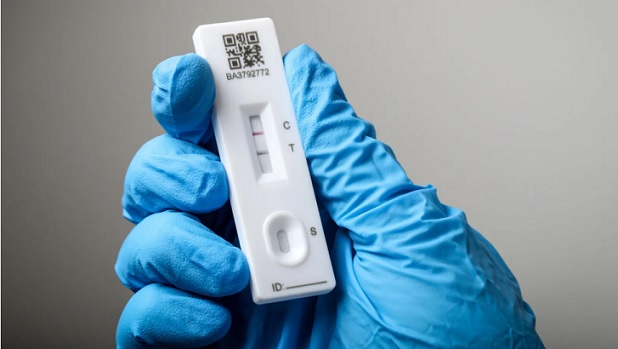
Memory B cells were discovered more than half a century ago. But scientists are just beginning to understand the crucial role they play in protecting people from serious illness.
n October 2020, a team of virologists at the Rockefeller University in New York embarked on a year-long project to try and anticipate which dangerous forms of Covid-19 might emerge in future.
While the spectre of new variants was yet to preoccupy the minds of political leaders and citizens around the globe, scientists were keenly aware that Covid-19 would almost certainly mutate in ways that could make it more infectious and virulent.
The aim of Rockefeller's scientists was to create an artificial version of the Covid-19 spike protein – the protein the virus uses to penetrate our cells – that could evade all known types of protective antibodies that had been found in the blood of Covid-19 survivors.
Over the next 12 months, they played around with different combinations of mutations on the surface of the spike protein until they found a set of 20 which appeared to make it particularly resilient to anything the immune system might be able to throw at it. To test this lab-grown "Frankenspike" out, they inserted it into what virologists call a pseudotype virus, one which has been engineered so it does not have enough genetic material to replicate, allowing scientists to tweak it and understand how it behaves without any risk of it escaping.
Initially things played out as expected. When the virologists exposed their newly engineered virus to blood samples taken from people who had either recovered from Covid-19, or been vaccinated against the disease, it expertly eluded every antibody they had.
But then something surprising happened. When they tested it on the blood of people who had recovered from Covid-19 in 2020 and then also been vaccinated many months later, their antibodies were able to bind to the virus and completely neutralise it.
"This was really incredible to see," says Michel Nussenzweig, professor of molecular immunology at the Rockefeller University, and one of the scientists involved in the project. "One of the biggest things we've learnt from the pandemic is how our immune system response differs depending on whether we've been naturally infected, vaccinated, or both." (Of course, this does not mean it's a good idea to become infected intentionally, since every infection comes with risks.)
Over the last four months, the Rockefeller team's findings have been repeatedly observed in real life. People who have recovered from a Covid-19 infection in the past, and then been vaccinated, appear to be more resilient to the new variants, from Delta to Omicron.
Immunologists have taken blood samples from these individuals and found them to have a kind of "super immunity" – dubbed hybrid immunity by the scientific world. These people produce not only astronomically high levels of antibodies – far more than those who have just been double vaccinated and boosted – but a much more diverse range of antibodies, which have a greater chance of finding viral weak spots, even in a highly mutated form of Covid-19.
A recent study from scientists in Boston and South Africa found that people who had been previously infected with a form of Covid-19, before having two vaccine doses and a booster, had greater immunity against Omicron – the closest thing in real life to Rockefeller's artificial virus.
"Once people who have had Covid-19 are vaccinated with an mRNA vaccine, you see that they produce an antibody response which is three times higher than those who received the vaccine without prior infection," says Nussenzweig.
But the reason these people display such potent responses is down to a long-overlooked facet of our immune system, a type of white blood cell known as memory B cells. These cells are generated in response to a virus, and remember it in case that pathogen ever returns.
For a long time, we knew relatively little about these cells, and how they behave. But through investigations into HIV, Ebola, autoimmune diseases and now Covid-19, we are beginning to understand just how vital they are in determining our responses to both infections and vaccines.

